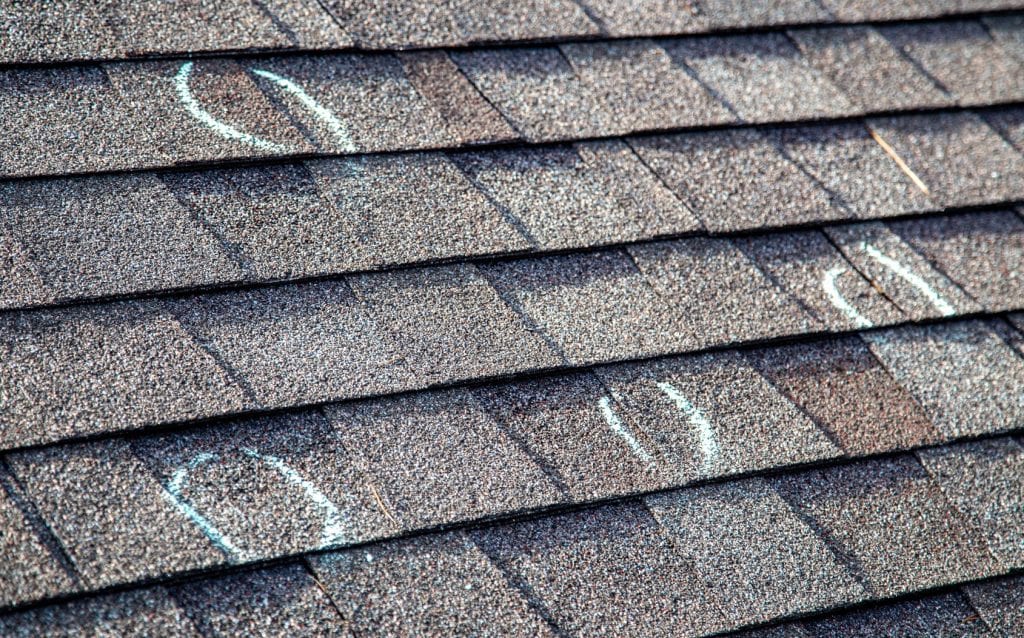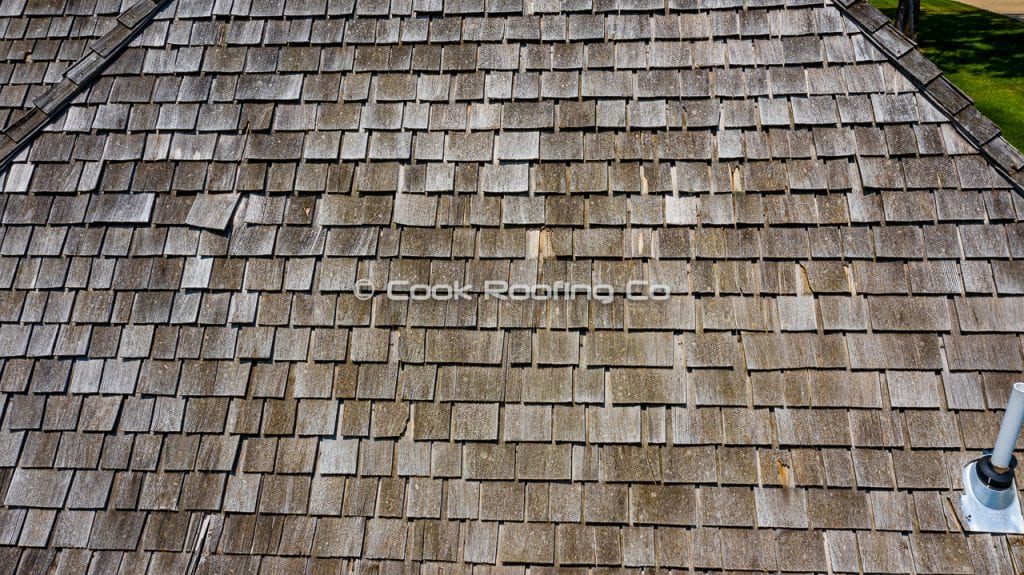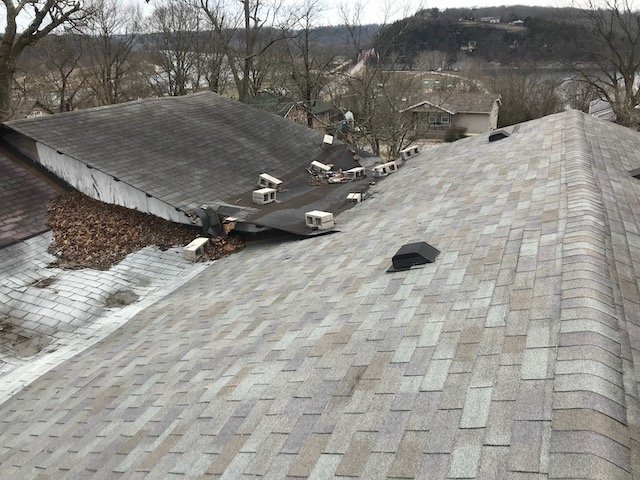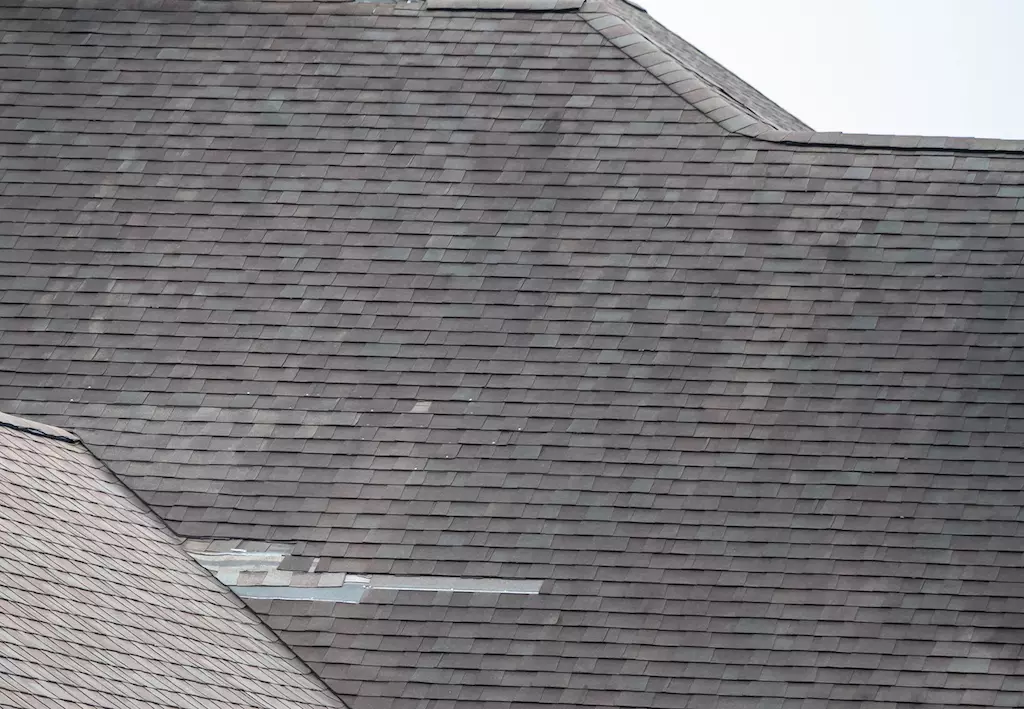
The Cook Roofing Company Difference:
- Free Roof Estimate
- Lifetime Workmanship Warranty
- Fast Response Time
- We Work with All Insurance Companies
- Certified & Insured
- 5-Star Google Rating
About Our Roof Leak Repair Services
Here at Cook Roofing Company, we provide all of our valued customers with the highest quality support and treatment. Whether you just need a small roof repair, or you may need a full roof replacement, don't delay - call 417-815-6725 now!
Not only do Cook Roofing Company professionals understand how roofs are built, but when it comes to many other aspects of construction and repairs on your commercial or residential property in Richland, Cook Roofing Company will make sure that all the work is done right, so that your property looks great and is secure and dry again for years to come. Call today at 417-815-6725 to experience the Cook Roofing Company difference!

Roof Leak Repair
Roof repairs for leaks are the biggest reason people call us. Sometimes it’s just flashing or some ridge cap that’s come loose, and some caulking or a few shingles will fix it. But a leak that has been there for a while may have developed other hidden damage. The longer you wait to fix it, the more serious it will get. A leak left alone can eventually destroy a home. The best thing to do is call someone out to see if we can fix that leaking roof. And, depending on what caused it, it may be covered by insurance. We can help you figure out if it’s something that might be covered (coverage will be up to your insurance carrier of course). For residential roof repair, call Cook Roofing Company at 417-815-6725

What Does Roof Leak Repair Cost in Richland
Depends, if it’s something easily remedied, like some caulking around a pipe flashing, it could possibly be relatively inexpensive. If the leak is a part of the roof that requires more extensive replacement of roofing, that can cost a lot more.
Insurance typically covers the cost of repairs if there is storm damage causing the leak. In that situation, you would only be required to cover the deductible, and we do offer financing for those (we’d love to waive your deductible, but that would be illegal. Beware of any roofing company in [iss_city_abbr_state] who says they don’t require or need one, that's insurance fraud). Call us for your free roof inspection, it’s the best first step, and there’s no obligation for Cook Roofing Company to come out and have a look, and give you a free - and thorough - estimate.
Missing Shingles Caused by Wind Damage
You wake up in the morning to go walk the dog, and there are shingles on your front lawn. Now what do you do? Well, sometimes on a newer roof, it’s possible to lift the shingles above the damaged ones up. They then remove the rest of the shingle (more than 50% of the damaged shingle is still underneath the one above it), try not to damage the underlayment (felt), nail a new shingle in, and try to keep from tearing other shingles. However, sometimes the shingles are worn and frail, and the others don’t pull aside easily, and tear and break apart. The plywood decking could be rotting and waterlogged and even delaminate as a result. There could even be so many shingles torn off or damaged that a simple repair won't cut it, and the whole roof will have to be replaced in some cases. A good roofing company would be unlikely to guarantee your roof won’t leak if they just make your roof look like a patchwork quilt. In many cases, insurance will buy these roofs after another inspection on them.

Missing Shingles from Wind Damage
Maybe the wind blew a few shingle tabs off. Sometimes, on a newer roof, it’s possible to lift the shingles above the damaged ones up. They then remove the rest of the shingle (more than 50% of the damaged shingle is still underneath the one above it), try not to damage the underlayment (felt), nail a new shingle in, and try to keep from tearing other shingles.
Often, though, the shingles are old and worn, the other shingles don’t pull aside easily and instead they tear or break, etc. And if water was getting in, the plywood decking may be waterlogged or even starting to delaminate and rot. It may be that other shingles were blown loose also, to the point that there would be too many shingles to replace.
A good roofing company would be unlikely to guarantee your roof won’t leak if they just turn your roof into a patchwork of repairs. In many cases, insurance will buy these roofs after a second inspection. Cook Roofing Company backs our work with a Lifetime Workmanship Warranty. If we can repair it and stand behind it, we will. If we can't, we'll explain why and if applicable, help you get it covered by insurance. Call for a free estimate today
Questions or Concerns For Us? Call Today 417-815-6725
FAQ
[caldera_form id="CF5fcac288288dc"]

